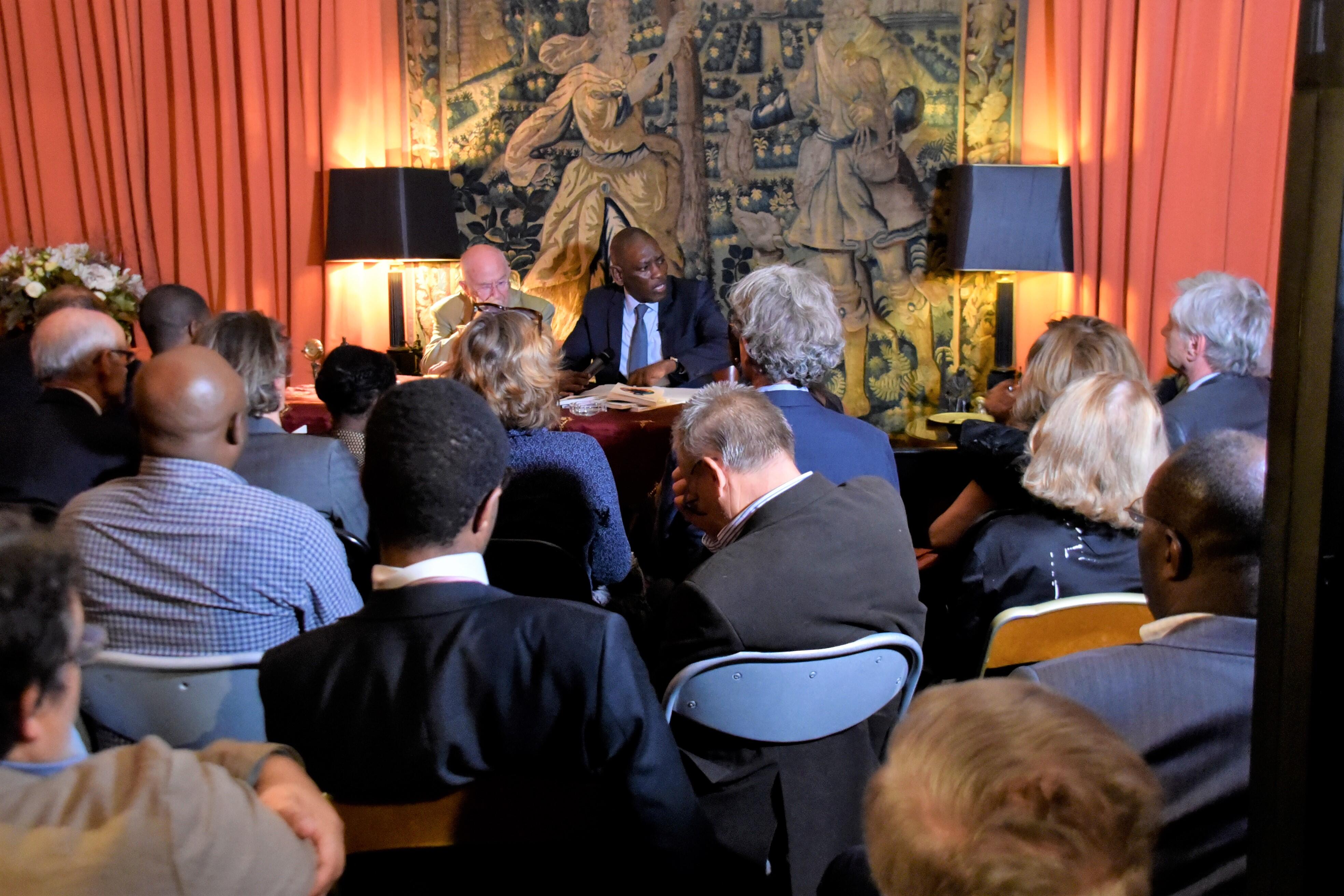"42% of girls abandon the school system before high school, because of unwanted pregnancies and early marriages," said the Regional Director of the United Nations Population Fund for West and Central Africa Mr. Mabingué Ngom, during the presentation in Paris on Thursday, October 10th of the book entitled "Goal 17: partnership, a privileged approach of UNFPA for the transformation of Africa and the world ". The presentation aimed at restoring the experience of the regional office and highlighting the various dimensions of the partnership, to show how it can be a fruitful strategy.
The meeting was made at the invitation of Mrs. Joëlle Bonnefous, Ms. Michelle de Charrette and Mr. Hervé de Charrette, former Minister of Foreign Affairs of France, who moderated the discussions. The audience consisted of a crowd of high-profile guests, development partners and political actors from the African Voice Club, a circle of friendships and meetings around Africa.
In his presentation, the Regional Director recalled the situation with regard to several indicators in Africa: "Modern methods of contraception are used by 25% of the population south of the Sahara, but only 18% in West and Central Africa. Some countries in our region have the lowest contraceptive rate in the world: 6% in Chad, 9% in Guinea, 12% in Gambia, 16% in Niger ". Mr. Ngom recalled the consequences of a low prevalence of contraceptives: "If we do not solve the issue of family planning, 80 million additional children in the world will go to bed hungry. Likewise, and I discuss this with the International Labor Office, we will have more than 20 million additional jobseekers a year. "
To reverse this trend, Mabingué Ngom stressed the need to build strong multi-stakeholder partnerships that could also face security challenges in West and Central Africa, because according to him, no agency or State holds it alone a solution to these problems. He also presented several achievements made possible through a strategic partnership. These include the Sahel Women's Empowerment and Demographic Dividend Project SWEDD, as well as the French-funded Muskoka project to improve adolescent maternal and reproductive health.


